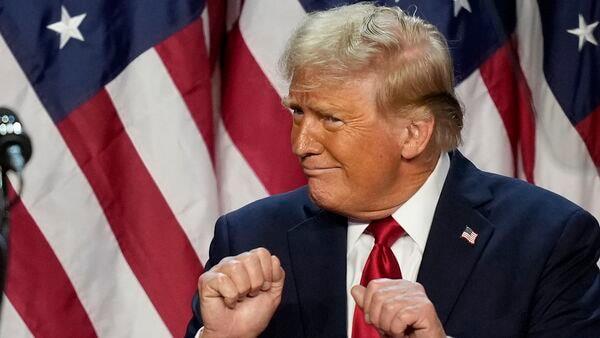
Trump's Tariff Bombshell: How A 60% Levy On Chinese Goods Could Force Taiwanese Firms Out Of China
As Trump targets Chinese-made goods with hefty tariffs , he's also calling for 'protection fees' from Taiwan's Taiwan Semiconductor Manufacturing Co. (TSMC). With high stakes for the global chip supply, Taiwan's Economics Minister reassures that TSMC's U.S. jobs should secure CHIPS Act support, but Taiwan is preparing for shifting trade dynamics.
US President-elect Donald Trump 's proposed economic policies include a 10 percent tariff on all U.S. imports, which Taiwan's Economics Minister Kuo Jyh-huei said on Thursday that it would have minimal effect on Taiwan directly. However, a proposed 60 percent levy on Chinese-made products is expected to have a more substantial impact on Taiwanese firms that operate in China, including companies within Taiwan's technology and electronics sector.
Challenges for Taiwanese firms in ChinaMinister Kuo acknowledged that Trump 's presidency might influence more Taiwanese firms operating in China to relocate back to Taiwan. Kuo announced on Thursday that the government will support Taiwanese companies seeking to shift production away from China, as U.S. President-elect Donald Trump's proposed tariffs on Chinese imports could significantly impact their operations.
Trump, set to assume office in January, has pledged to impose a 60% tariff on U.S. imports of Chinese goods, a move that could have broad economic implications for China. Taiwan, whose firms have invested heavily in China over the past four decades, is closely watching how these tariffs could affect Taiwanese companies that have historically relied on China's lower production costs.
“We will, as soon as possible, come up with support for Taiwan companies to move their production bases,” Kuo said.
Also Read | Trump's tariff threat: 100% on goods for nations moving away from the dollar Impact on TSMC and U.S. CHIPS ActIn response to Trump's remarks suggesting Taiwan should pay“protection fees,” Kuo addressed concerns over potential implications for U.S. subsidies extended to Taiwan Semiconductor Manufacturing Co. (TSMC), a critical player in the semiconductor supply chain. Kuo expressed confidence that the jobs provided by TSMC's U.S. facilities should help secure the stability of the CHIPS Act.
In a recent interview with podcaster Joe Rogan, Trump described the CHIPS Act as“so bad,” arguing that tariffs would have been a simpler approach to incentivizing domestic manufacturing. He also suggested that Taiwan had“stolen” the U.S. chip industry, a sentiment Kuo disputed as a“misunderstanding.”
Also Read | US Fed chair says will not leave early if asked by president-elect Trump, 'No'...According to Kuo, industry experts recognize that the U.S. and Taiwan have a mutually beneficial relationship in the semiconductor supply chain, with Taiwan's advanced chip manufacturing capabilities providing competitive advantages for American tech companies.
Also Read | Trump presidency 2.0: A sequel likely to outdo his first stint in powerHe assured that Taiwan's government is preparing policies to support companies looking to diversify their supply chains and adapt to shifting trade policies.
Also Read | Jaishankar highlights opportunities for US-India ties post US elections Kuo noted that TSMC will continue discussions with U.S. policymakers to ensure a stable environment for its operations while aligning with strategic U.S. interests. Legal Disclaimer:
MENAFN provides the
information “as is” without warranty of any kind. We do not accept
any responsibility or liability for the accuracy, content, images,
videos, licenses, completeness, legality, or reliability of the information
contained in this article. If you have any complaints or copyright
issues related to this article, kindly contact the provider above.


















Comments
No comment